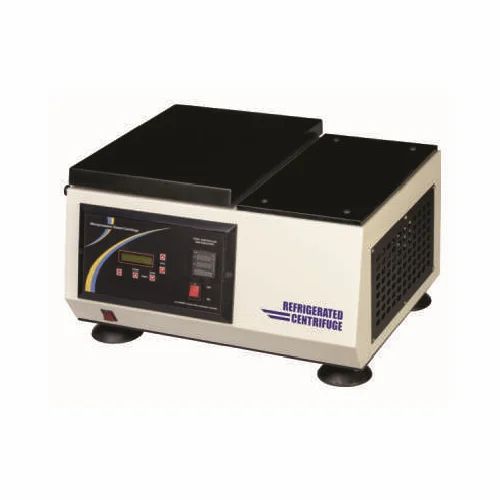A non-refrigerated centrifuge, as the name suggests, does not have a cooling system. It is used for samples that can tolerate room temperature or elevated temperatures without degradation. Non-refrigerated centrifuges are mostly used in clinical, environmental, biochemical, and industrial laboratories.

Advantages of Non-refrigerated Centrifuges
1. Economical
Non-refrigerated centrifuges are much cheaper than refrigerated centrifuges. Therefore, they are a more affordable option for laboratories that do not require low-temperature centrifugation.
2. Smaller size and lighter weight
Non-refrigerated centrifuges are generally more compact and lightweight than refrigerated centrifuges. This makes them easier to move and store in small laboratories.
3. Suitable for certain materials
Some samples cannot tolerate low temperatures, and a non-refrigerated centrifuge is the only option for studying them. These include certain enzymes, biological fluids, and proteins.
4. Easy maintenance
Non-refrigerated centrifuges require less maintenance than refrigerated centrifuges. They do not have complicated cooling systems, so they need less upkeep.
Applications of Non-refrigerated Centrifuges
Non-refrigerated centrifuges are essential equipment in many laboratories. They are used in fields such as:
1. Clinical laboratories
Non-refrigerated centrifuges are used in clinical laboratories to separate blood components. The serum, plasma, and cells can then be studied and analyzed for various health parameters.
2. Biochemical research
Non-refrigerated centrifuges play an important role in biochemistry research. They are used for separating proteins, nucleic acids, enzymes, and other biological molecules.
3. Environmental studies
Non-refrigerated centrifuges are used in environmental laboratories to study soil samples and water analysis. They help in the separation of solids and liquids from water samples in a quick time.
4. Food industry
Non-refrigerated centrifuges are used in the food industry to separate components like oil, milk, and cream.
Conclusion
Non-refrigerated centrifuges are an excellent option for labs that require centrifugation of samples that can tolerate room temperature or elevated temperatures. They offer various advantages such as economical pricing, easy maintenance, and smaller size. Additionally, they find application in several fields like clinical, biochemical, and environmental studies. To conclude, non-refrigerated centrifuges are a cost-effective and effective solution for separation of different substances without the need for low temperatures.